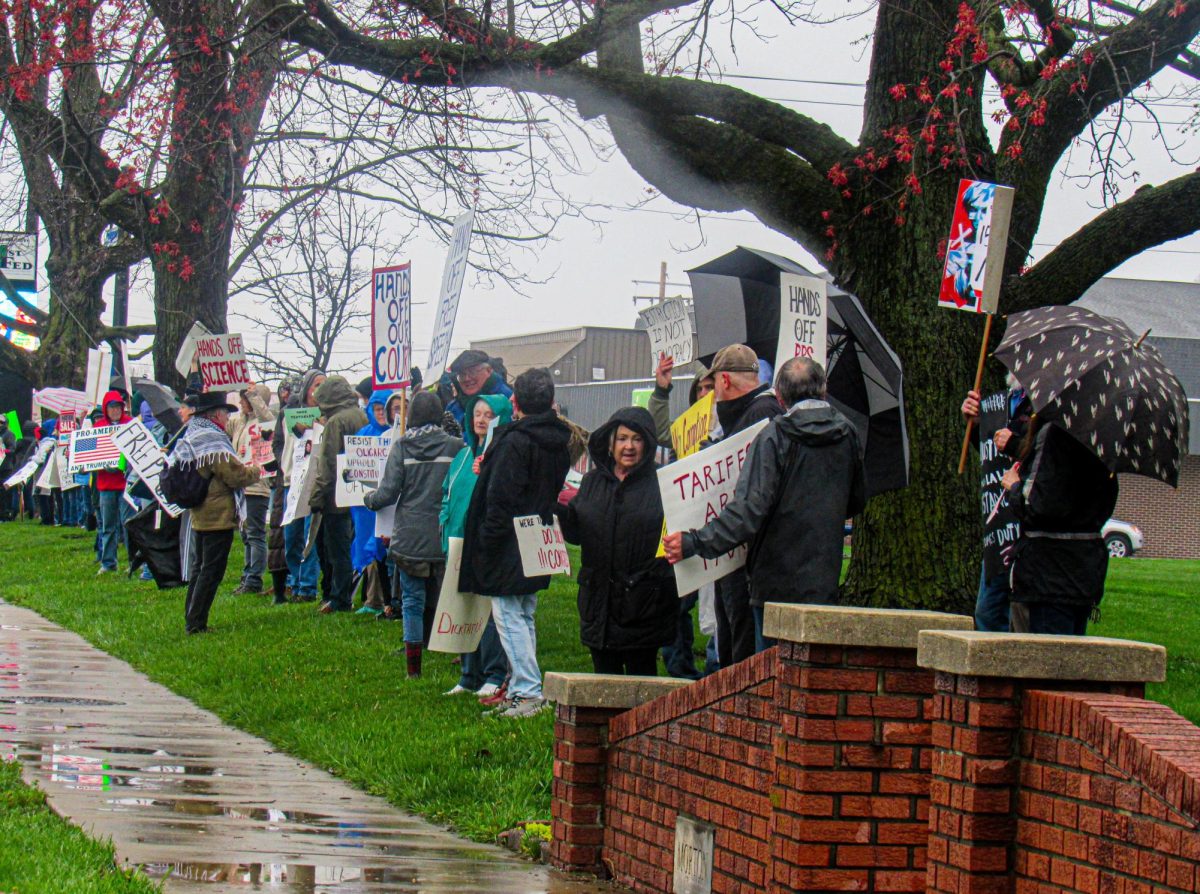City Council approves funds for street maintenance
May 19, 2021
The Charleston City Council approved four resolutions during their meeting on Tuesday, two of which were bid awards, an allocation of $543,738 in Motor Fuel Tax Funds for maintaining streets and highways for the FY 2022, and the approval to continue the local state of emergency in relation to the COVID-19 pandemic.
The first bid awarded was for the acceptance of unit prices for various street maintenance materials to Ne-Co Asphalt, Mid-Illinois Concrete, Inc., and Morris Trucking, LLC.
The second bid award was for the MFT Seal Coat Project and seal coat materials to NeCo Asphalt Company for a contract price of $102,924.
Both the bid opening for the City of Charleston’s MFT Street Maintenance Materials and MFT Seal Coat Project were conducted May 11, 2021.
A local state of emergency was reintroduced through a resolution, which said, “The nature of the emergency is the ongoing Coronavirus Disease 2019 (COVID-19) pandemic of sufficient severity and magnitude that it may result in or threaten the death or illness of persons to such an extent that extraordinary measures must be taken to protect the public health, safety and welfare of the citizens of the City of Charleston, and thereby it has warranted an emergency declaration for all states and local government entities and more specifically within the corporate limits of the City of Charleston.”
While the local state of emergency is in effect, Mayor Brandon Combs shall, “execute such authority as provided under the Illinois Municipal Code, the Illinois Emergency Management Agency Act and Ordinance 20-O-7.”
The resolution that was in opposition to SB2298 that would amending the Tax Increment Allocation Redevelopment Act of the Illinois Municipal Code was pulled from the agenda by sponsors of the bill.
Sponsors of the bill, Senator Ann Gillespie and co-sponsor Senator Melinda Bush pulled the bill from discussion due to statewide opposition.
The bill would have changed classification of distressed areas reducing what industrial, commercial, and residential buildings throughout Illinois communities can be improved and impose stricter requirements for equalized assess value decline and eliminate some TIF eligibility criteria.
Another is several restrictions on tax increment financing such as a requirement that all new redevelopment projects be completed no later than the end of 10 years after a TIF Ordinance is created instead of the 23 years now allowed, as well as would prohibit new or modified redevelopment project areas that overlap with other previously approved project areas.
Combs announced his reappointment of Matt Madigan and Nora Pat Small to 1-Year Terms as Ex Officio Members of the Charleston Historic Preservation Commission.
Theo Edwards can be reached at heedwards@eiu.edu.








![[THUMBNAIL EDITION] (From left to right) Head football coach Chris Wilkerson works with his son student assistant coach Peyton Wilkerson at football practice at O'Brien Field on the Eastern Illinois University campus on Thursday.](https://www.dailyeasternnews.com/wp-content/uploads/2025/04/FB_25_O-1-e1744234837107-1200x596.jpg)




![[Thumbnail Edition] Charleston High School sophomore Railyn Cox pitches the ball during Charleston's 8-7 win over Flora High School on Monday, March 31.](https://www.dailyeasternnews.com/wp-content/uploads/2025/04/SBHS_01_O-1-e1743982413843-1200x1023.jpg)



![[Thumbnail Edition] Senior Foward Macy McGlone, getsw the ball and gets the point during the first half of the game aginst Western Illinois University,, Eastern Illinois University Lost to Western Illinois University Thursday March 6 20205, 78-75 EIU lost making it the end of their season](https://www.dailyeasternnews.com/wp-content/uploads/2025/03/WBB_OVC_03_O-1-e1743361637111-1200x614.jpg)




















![[Thumbnail Edition] Eastern Illinois softball senior infielder Briana Gonzalez resetting in the batter's box after a pitch at Williams Field during Eastern’s first game against Southeast Missouri State as Eastern split the games as Eastern lost the first game 3-0 and won the second 8-5 on March 28.](https://www.dailyeasternnews.com/wp-content/uploads/2025/04/SBSEMO_11_O-1-e1743993806746-1200x692.jpg)















![The Weeklings lead guitarist John Merjave [Left] and guitarist Bob Burger [Right] perform "I Am the Walrus" at The Weeklings Beatles Bash concert in the Dvorak Concert Hall on Saturday.](https://www.dailyeasternnews.com/wp-content/uploads/2025/03/WL_01_O-1200x900.jpg)















